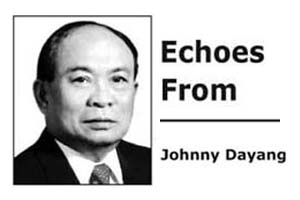OUR Muslim brothers have spoken. A great majority of them resounding ratified the Bangsamoro Organic Law (BOL) in its Jan. 21 initial plebiscite. The BOL seeks to establish the new Bangsamoro Autonomous Region in Muslim Mindanao (BARMM) to replace the obviously failed Autonomous Region in Muslim Mindanao (ARMM).
Even Christians in predominantly Muslim-dominated Mindanao areas supported the contentious BOL except for Isabela City in Basilan. Sulu, an original part of the ARMM, however, opted out. Cotabato City, the seat of the ARMM, but outside of its political jurisdiction, ratified the BOL although its City Mayor, a Muslim herself, and other leaders, are contesting the plebiscite results. Be that as it may, the BOL is expected to pave the way towards peace, stability, and development in Mindanao.
On Feb. 6, the plebiscite’s second phase will be conducted in Lanao del Norte (except Iligan City) and North Cotabato, and other local government units the BARMM seeks to include. Overall, according to the Commission on Elections, the areas covered by the two referenda have 2,839,659 registered voters in 18,439 established precincts.
Despite the usual electoral kinks that have become part of Philippine political exercises, most Mindanao old-timers and decision-makers see that the BOL’s eventual ratification highlights the long-standing aspiration of Muslims, indigenous peoples, and Christians in the south who consider themselves victims of conflicts the national government has curiously overlooked and failed to address because they are “only second-class citizens.” They also strongly believe the BARMM will help spur Mindanao’s growth and progress.
More fascinating is the expectation that the BOL’s ratification will result in peace, productive exploration and exploitation of resources, fiscal autonomy, sound self-governance, authority to negotiate, enter and sign foreign loan agreements, appropriate funds for BARMM’s progress, and spend its revenues for the meaningful development of Mindanao.
The BOL, with all its perceived defects and deficiencies, may not be the panacea for all the issues that continue to hound Mindanao. The creation of the BARMM resulting from the collective efforts of conflicting parties, however, provides optimism for significant prospects and long-term possibilities.
Getting out of the country’s economic rot by cultivating the potentials of Mindanao is something the national government can positively but cautiously look forward. Encouragingly, many countries have already pledged to give their support for the BARMM and the development of Southern Philippines.



